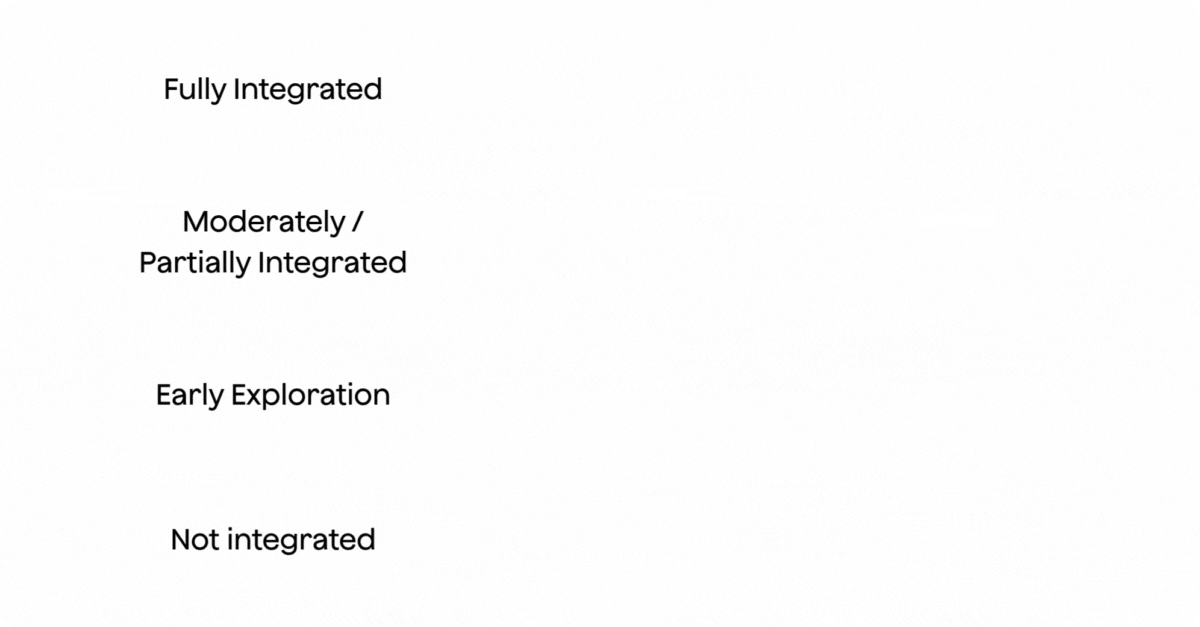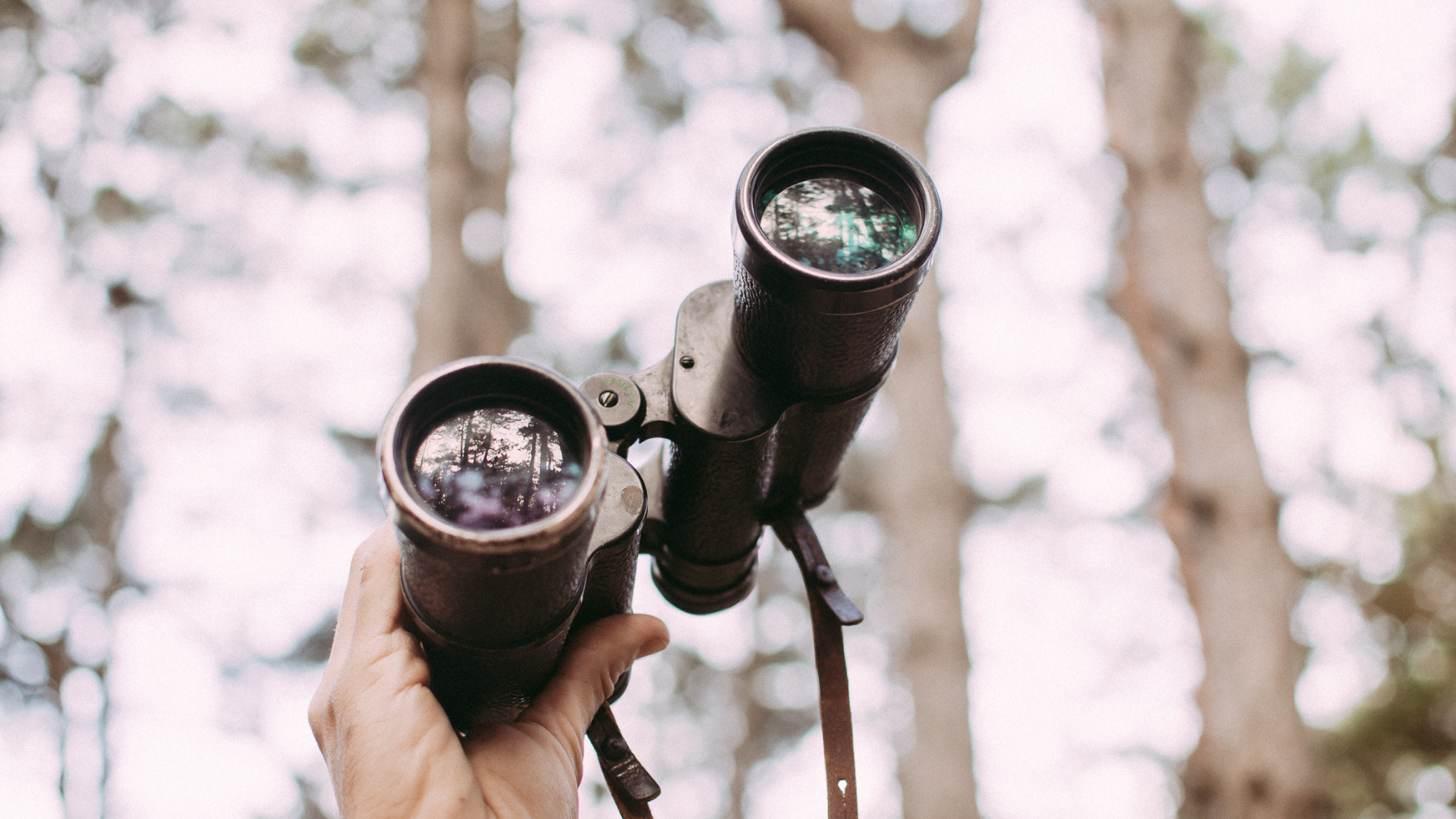‘AI in the Creative Industries 2025’ – Preliminary Findings
We’re proud to share our preliminary findings from our ‘AI in the Creative Industries’ report - an exploration into how artificial intelligence and emerging technologies, are transforming creativity, workflows and the skills of tomorrow.
As AI tools become embedded in the way agencies and brands operate, the creative economy is once again adapting to workplace disruption. Our research draws on insights from over 1,002 professionals and more than 60,000 data points, revealing how the industry is reimagining processes and redefining roles to reshape creative output for a new era.

The findings below offer an early look at the shifts that are already underway. The full report will be available on Wednesday, 19 November 2025 - complete the form below to receive your exclusive copy.
AI Adoption & Integration
Earlier this year, our 2025 Salary Census revealed that nine in ten business leaders consider AI a strategic priority. This intent is now translating into action, with 94% of organisations having adopted AI across their workplaces and workflows, albeit at differing stages of maturity.

Data from the survey shows the key drivers behind AI adoption are clear: businesses see AI as a means to enhance productivity, innovation, creativity, and cost efficiency.
Yet while business adoption is advancing at a strategic level, individual usage tells a different story. Most creative and marketing professionals remain inthe early stages of adoption or exploration, experimenting lightly with AI inspecific tasks, with only a small proportion (10%) using it for more than half of their weekly work.
When it comes to tools, usage is consolidating around a few dominant platforms that have quickly become staples in creative and marketing workflows, with most professionals using three to four AI tools each week. These typically include large language models (LLMs) such as ChatGPT, Gemini, and Claude, alongside visual and generative design tools like Midjourney and Adobe Firefly.
Our findings suggest a sector that’s evolving from curiosity to capability, experimenting with purpose, yet still finding its footing and confidence in how to fully integrate AI into creative practice.
Bridging the AI Skills Gap
While business enthusiasm for AI is high, structured investment is yet to catch up. Lack of skills and cultural resistance remain the biggest barriers to scaling AI across an organisation, yet over half of organisations (56%) have no dedicated AI budget for training or tools, with a further 28% operating on a limited budget. In practice, this means that most teams are still expected to learn as they go - experimenting independently rather than through structured L&D programmes or strategic enablement.
In light of this, organisations are beginning to prioritise skill sets that blend creativity and technical fluency - from data and insights storytelling to workflow automation and prompt engineering. These hybrid skills, paired with interpersonal capabilities such as creativity, innovation, and problem-solving, are quickly becoming the foundation of future marketing and creative roles. How well teams learn to collaborate with these tools and interpret output will facilitate the conversion of technical capability into meaningful innovation.
.gif)
Tellingly, 81% of respondents said that limited training and knowledge is holding them back from using AI to its full potential - a clear signal that businesses must invest in structured learning and development to truly unlock its value.
Combatting “AI slop”
As AI becomes more deeply woven into creative workflows, a new challenge emerges -the rise of what some are calling “AI slop”: low-quality, formulaic outputs that lack originality or human insight.
Our data suggests that one of the main ways businesses are currently measuring the impact of AI is through increased output. Yet, with many teams self-teaching, and operating without training or strategic guidance, there’s a growing risk that quantity is being prioritised over quality. Without investment into L&D and creative standards, AI can too easily become a shortcut, rather than as a facilitator.
.gif)
Almost three quarters of our respondents (70%), believe that AI will positively support their role in the future – yet many also express concerns that it could diminish originality and creativity within their specialism. Without clear guidance, quick, surface-level use of AI risks creating new inefficiencies, undermining creative trust.
This tension is already being felt: one in three professionals report client concerns around AI use in projects, and a similar proportion believe clients still prefer human-only work, underscoring the delicate balance between innovation and trust.
Our ‘AI in the Creative Industries’ report will further touch upon the themes above, while also exploring how emerging technologies are redefining creativity, leadership, and the skills of tomorrow. Register below to receive your copy on Wednesday, the 19th of November and discover how employers and employees can unlock the true value of AI.








.png)

